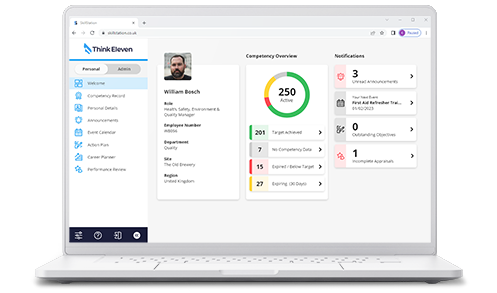Variations to Marketing Authorisations in Europe (SUB06) eLearning Course
Learning Objective
Changes to the terms of marketing authorisations for medicinal products, called variations in Europe, must be notified to or approved by the relevant regulatory authorities. Variations include changes to the composition of products, their manufacturing processes, the way they are used, or the indications for which they are authorised. Common approaches are adopted within the European Economic Area to variations to marketing authorisations approved through the Centralised, Decentralised or Mutual Recognition Procedures. Recent legislation has substantially modified the regulatory requirements and extended them to purely national authorisations by member states. This module, which is fully up to date with the new legislation, covers the classification of variations into their several types and the regulatory requirements, guidance and procedures to be followed for each type.
Who will benefit from this module?
Regulatory affairs and compliance staff, and all those who contribute to regulatory submissions, will find the module an invaluable introductory training course and/or a useful reference tool.
Learning Objectives
- Define the concept of variations to marketing authorisations in the EEA.
- Identify which type of variation is appropriate for each kind of change to be made.
- Identify the documentation required to support the variation.
- Describe how to prepare and submit variation notifications or applications appropriate for each type of variation and route of regulatory approval, including options for grouping of variations and for work sharing of assessment.
Module Outline
Defining variations - This session identifies and characterises the different types of variation.
Determining variation types - This session looks at the reasons for variations and describes how to identify the type of variation appropriate for each change required.
General procedural aspects - This session describes the different routes to regulatory approval of variations, identifies which is appropriate for a given product, specifies the supporting documentation necessary, and describes the provisions for grouping multiple variations into a single submission and for work sharing of regulatory assessment among member states.
Variations via the Centralised Procedure - This session describes the processes specific to the submission and processing of variations notifications and applications through the Centralised Procedure.
Variations via the Mutual Recognition Procedure - This session describes the processes specific to the submission and processing of variations notifications and applications through the Mutual Recognition Procedure.
Case study - A case study of a flawed submission process.
Assessment - Multiple-choice mastery assessment.
This course has a minimum of 25 learner registrations for us to provide a quotation.
Request a Quotation- Language
- UK
- Date last updated
- 5/20/2024
- Duration
- 3 Hours 30 Minutes
- Suitable Devices
-
- PC
- Tablet
- Audio is Required
-
- Optional
- Includes Video
-
- No
- Downloadable Resources
-
- Factsheets
- Linked within Course
- Transcripts
- Completion Criteria
-
- Complete all modules
- Multiple Choice Assessment
- Pass Mark
-
- 75% pass mark required
- Course Technology
-
- HTML5
- SCORM 1.2
- Can be customised
-
- Available at an Additional Cost
- Accreditation or Endorsements
-
- CPD
- Languages
-
- English
